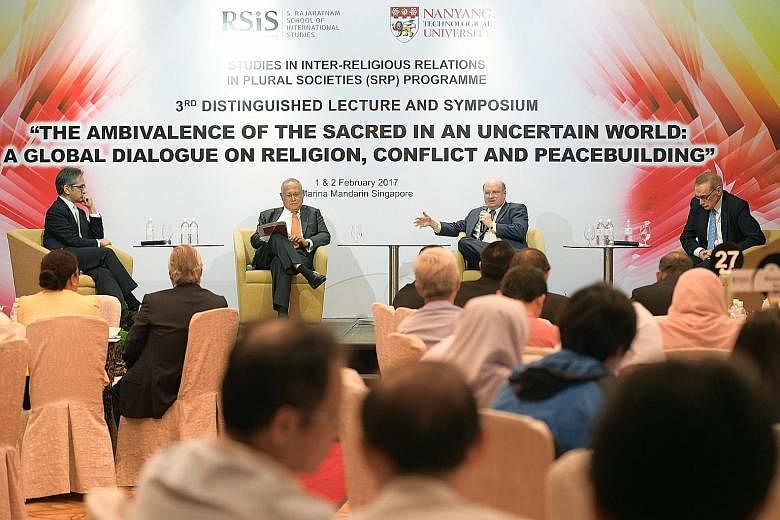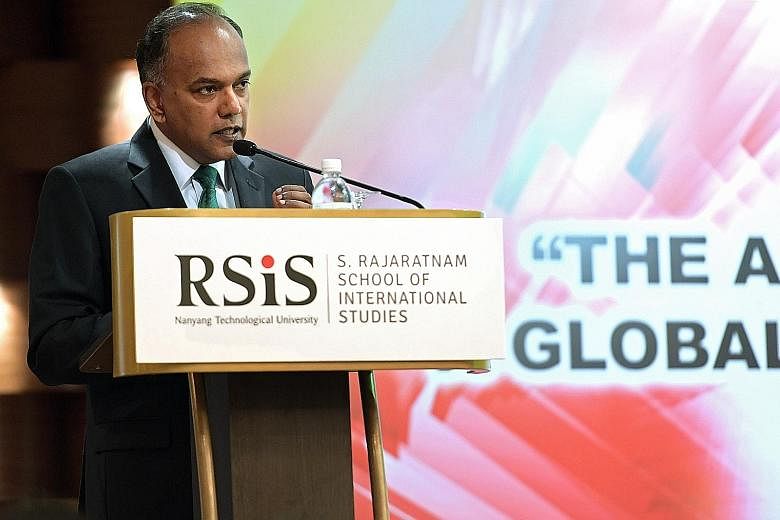When US President Donald Trump put a temporary travel ban on citizens of seven Muslim-majority countries, he "validated the feelings" of a significant segment of his voters, Home Affairs and Law Minister K. Shanmugam said yesterday.
Such anti-Islamic sentiments are also sweeping through other parts of the Western world, gaining significant support from the far right in countries such as France, the Netherlands and Germany, he noted.
This global trend, and recent regional events, can disrupt Singa- pore's racial and religious harmony, he told a conference held by the S. Rajaratnam School of International Studies and attended by religious leaders, students and academics.
Mr Shanmugam put the anti-Islamic feelings down to the perception among host populations that minority communities and immigrants have been exploiting the systems and hard-working citizens.
Also, "that law and order have gone down, that welfare systems are being abused and that their rice bowls are threatened. In fact, that their entire way of life, culture, conventions are all being threatened".
"Politicians who advocate tolerance are seen as out of touch and weak - therefore (there is) a fascination with leaders who promise strength," he said.
He cited examples of the pushback, like the ban against women wearing burkinis at some French beaches. "So leaders are now saying to immigrants, 'Behave normally or go away'," he added.
But there is a serious risk that this reaction to popular sentiments, if taken too far, will legitimise Islamophobia, he said. "It is not good for the world. It strengthens extremists on both sides and helps them feed off each other."
Singapore has so far avoided getting into this vicious circle, he said, through an approach centred on three core principles - equality, accepting diversity and keeping a common space for interactions.
These are reflected in such government policies as requiring a mix of races in public housing, standard uniforms for students, and tough laws on racial and religious remarks.
While "well-meaning, highly educated" Singaporeans have questioned the need for such policies, Mr Shanmugam said the measures are "good for society as a whole".
He also noted that Singapore's system of elections means majoritarianism could take hold.
He stressed that whoever forms the government must stay committed to protecting the minorities and not engage in racial politics.
"We need the majority of the Chinese to support this," he added.
Mr Shanmugam also spoke about rising religious extremism in the region, citing demonstrations in Indonesia, and the Mufti of Pahang state in Malaysia who branded those opposing Islamic laws as infidels.
"If these trends continue in the region, and if racial and religious rhetoric increases, that can impact Singapore quite severely," he said.
"If all sides push aggressively, then the centre will collapse," he added. "In Singapore, the Government tries very hard to keep as large a common space as possible."



